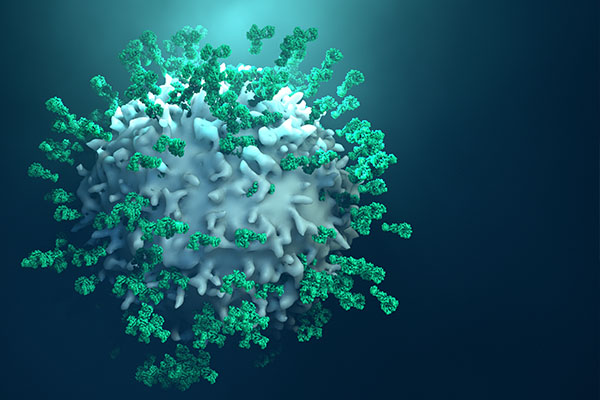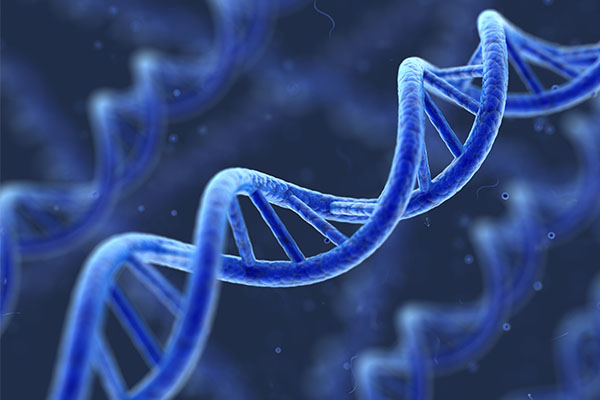HOW CAN WE HELP YOU? Call 1-800-TRY-CHOP
Center for Applied Genomics Research Overview
The Center for Applied Genomics is a Center of Excellence at CHOP and a driving research force in pediatrics worldwide, collaborating with respected research partners both nationally and internationally to advance genomic research into innovative therapies. The foundation of our research resides in the CAG Biobank, established in 2006 to become one of the world’s largest and most diverse pediatric biorepositories, hosting 600,000 samples including more than 130,000 CHOP patients and family members. More recently CAG’s Rare Disease program, launched in 2015 has revealed the genetic basis of more than 200 rare disorders. CAG's gene discovery pipeline runs from genotype-sequencing-Sanger/TaqMan through validation, and all steps are CAP/CLIA compliant.

CAG has been at the forefront of ADHD research for more than a decade, leading several prominent studies demonstrating that structural changes in our genetic material called copy number variations (CNVs) are associated with ADHD. We are conducting clinical trials using a small synthetic molecule, a metabotropic glutamate receptor activator known as NFC-1 (fasoracetam monohydrate) to determine the safety and efficacy of NFC-1 in alleviating ADHD symptoms in patients with specific genetic variants that affect how brain cells communicate with each other.

CAG has led several high-profile studies demonstrating how genetic risk factors for autoimmune diseases are shared across a range of diseases, including asthma, lupus, common variable immune deficiency (CVID), inflammatory bowel disease (IBD), type 1 diabetes, celiac disease, and juvenile arthritis. CAG research identified novel and significant genetic regions associated with autoimmune disease risk, and a number of these genes encode proteins that are established therapeutic targets with diverse biological effects. We are currently exploring these for clinical uses and actively pursuing drug-re-purposing for several autoimmune diseases.
CAG research was first to identify the close genetic relationship between early- and adult-onset IBD and demonstrating the power of stratification of IBD by age of onset to identify genetic risk factors. We also have a mature translational program exploring novel therapeutics for both Crohn's disease and ulcerative colitis, of which the first one is already in a phase 1 trial.

CAG has led breakthroughs in autism research for several years, and we are focused on transforming our landmark research into successful treatments for autism spectrum disorder. CAG research identified the first significant genome-wide association for autism. In another first, our team demonstrated that structural changes in the genome called copy number variations (CNVs) are associated with autism, specifically in a network of genes called the metabotropic glutamatergic (mGluR) network, with both studies published in the scientific magazine Nature. The team is embarking on clinical development.

CAG has been at the forefront of research into the genetic causes of neuroblastoma and testicular cancer. Neuroblastoma most commonly affects children at 5 years of age or younger, though it may rarely occur in older children. It is the most common type of cancer in infants. A collaboration with our colleagues in CHOP Oncology identified the anaplastic lymphoma kinase (ALK) gene as the main cause of familial neuroblastoma. Subsequent clinical trials with Crizotinib, a drug that targets this genetic variant, achieved remission in several children. In 2018, the FDA assigned crizotinib a breakthrough therapy designation for the treatment of patients with metastatic non–small cell lung cancer.
Testicular cancer is the most common form of cancer in men between the ages of 15 and 34, but also peaks in infancy, as well as in men over the age of 60. In collaboration with our colleagues at the University of Pennsylvania, CAG has had a major impact on our understanding of these diseases, uncovering multiple high-risk genes for testicular cancer.

CHOP is the healthcare provider for 10% of children in the United States with a rare disease. In addition to our focus on understanding previously unknown diseases, CAG established a clinical CLIA-certified next-generation sequencing laboratory and a specialized team with recognized expertise in rare diseases. Our rare disease discovery program has made novel discoveries in more than 200 diseases to date.